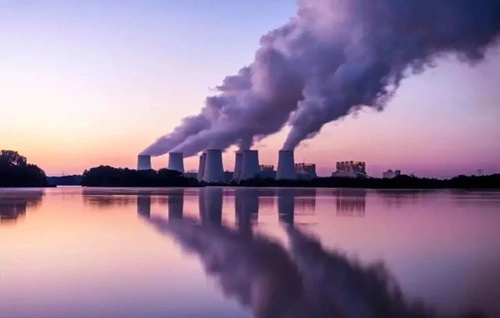In a recent move, India’s Ministry of Environment, Forest and Climate Change has granted a fourth extension to coal-fired thermal power plants for complying with sulphur dioxide (SO₂) emission standards. Initially established in 2015, these norms aimed to curb air pollution by mandating the installation of Flue Gas Desulphurisation (FGD) equipment. The latest extension provides an additional three years for power plants to meet these requirements, raising concerns among environmentalists and public health advocates.
Background and Initial Deadlines

The emission standards, introduced in December 2015, required thermal power plants to install FGD systems—a technology designed to remove sulphur compounds from exhaust emissions—by December 2017. However, due to delays and limited vendor capacity, the deadlines have been repeatedly extended. The most recent extension shifts the compliance dates as follows:
- Plants within a 10 km radius of the National Capital Region (NCR) or cities with populations exceeding one million: Deadline extended from December 31, 2024, to December 31, 2027.
- Plants within 10 km of critically polluted areas (non-attainment cities): Deadline moved from December 31, 2025, to December 31, 2028.
- Plants in other regions: Compliance date postponed from December 31, 2026, to December 31, 2029.
Implications for Air Quality
The extension has sparked debate, particularly given the severe air pollution challenges in regions like Delhi-NCR. A recent analysis by the Centre for Research on Energy and Clean Air (CREA) revealed that 12 coal-based thermal power plants within a 300 km radius of Delhi emitted approximately 281 kilotonnes of SO₂ annually. Implementing FGD systems in these plants could potentially reduce emissions by 67%, significantly improving air quality and public health.
Environmental Concerns
Environmental groups have expressed disappointment over the repeated extensions. They argue that the delays undermine efforts to combat air pollution and its associated health risks. Coal-fired power plants are significant contributors to industrial emissions of sulphur and nitrogen oxides in India, which can lead to respiratory diseases and acid rain. The Centre for Science and Environment (CSE) noted that despite multiple deadline extensions and revised categorizations by the ministry, many plants continue to struggle with meeting prescribed norms for emissions.
Industry Challenges
The power industry cites several challenges in meeting the emission norms, including high costs associated with installing FGD systems, technical complexities, and limited availability of technology providers. Additionally, there are concerns about potential disruptions in power supply during the installation process. A report by the National Institute of Advanced Studies (NIAS) suggested that Indian coal’s low sulphur content might render FGD installations less effective, advocating instead for the use of electrostatic precipitators to address particulate matter pollution.
Government’s Stance
The government’s decision to extend the deadlines reflects a balancing act between environmental commitments and the practical challenges faced by the power sector. Officials have indicated that the extensions aim to provide power plants with adequate time to comply without disrupting electricity supply. However, the repeated delays have raised questions about the enforcement of environmental regulations and the prioritization of public health concerns.
Future Outlook
As the new deadlines approach, it remains to be seen whether the power plants will take proactive measures to install the necessary emission control technologies. The situation calls for a concerted effort from both the government and the industry to address the underlying challenges and ensure compliance. Failure to meet the extended deadlines could exacerbate India’s air pollution crisis, with significant implications for public health and the environment.
In conclusion, while the extension provides temporary relief to the power industry, it underscores the urgent need for a sustainable and effective approach to managing industrial emissions. The coming years will be critical in determining India’s commitment to environmental standards and the health of its citizens.
Hina Abbasi is Editor and a passionate sports and entertainment content writer at WinnersMaze.com. Hina’s expertise spans across a wide range of sports, and interest in many TV shows allowing her to deliver insightful analysis and compelling stories that resonate with readers.

